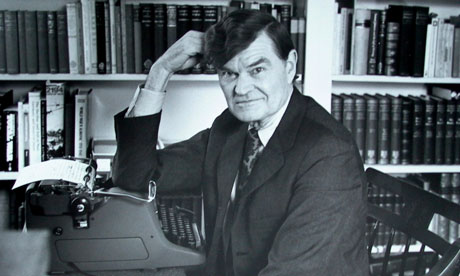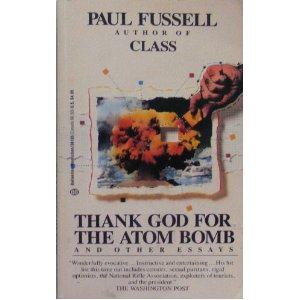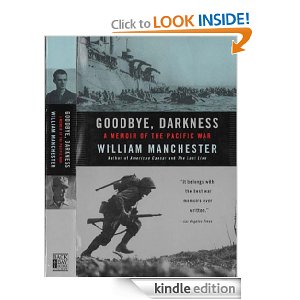Paul Fussell died in 2012. Many obituaries have been written, all worth reading (The Guardian's here and the New York Times' here).

I tend to read by subject. I'll travel to France, say, and when I get home I'm reading Lunch in Paris, The Greater Journey and My Life in France. I get home from Turkey and suddenly I've got books about Turkey backing up on the Kindle app on my iPhone, Ataturk, Birds Without Wings, The Oracle of Stamboul, A Fez of the Heart.
So when I heard the news about Paul Fussell, I was transported instantly back to that year that I was reading about World War II. Cornelius Ryan's The Longest Day, A Bridge Too Far, and The Last Battle led me to Bill Mauldin's The Brass Ring, everything by Ernie Pyle and Stilwell and the American Experience in China. (Reading really is the true perpetual motion machine.)

So today, I'm remembering Paul Fussell, who wrote about a different kind of war. The Guardian said it best:
The US writer Paul Fussell's 1975 book The Great War and Modern Memory was, according to the British military historian John Keegan, revolutionary. Fussell, in what he called "an elegaic commentary", shaped a picture of the horrors of the first world war, and the cold stupidity of its leaders, made more trenchant by his own experiences in the second world war. He also used the writings of Robert Graves, Siegfried Sassoon and others to show how the romanticising of the war and its heroes provided the creative spark for modernism, and the sensibility of disillusion and distrust of authority that characterised the so-called "lost generation".
(And of course after reading The Great War and Modern Memory I had to look up Rupert Graves and Siegfried Sassoon, who led me to Wilfred Owen and Randall Jarrell. You want to talk about the glory of war? Go read Jarrell's "The Death of the Ball-Turret Gunner" first.)
I'm a huge Barbara Tuchman fan, but I read Fussell before I read Tuchman, and Fussell colored my view of World War I so strongly that Tuchman's WWI books are my least favorites.

I remember particularly Fussell's Thank God for the Atom Bomb. The title essay is the grunt's eye view of the bombings of Hiroshima and Nagasaki. The title comes from a line from another book by another author, Goodbye, Darkness by William Manchester, another grunt's eye view of the war in the Pacific.
Sacrifice takes on a different meaning for you, when you're the sacrifice.

In a 1997 interview in The Atlantic , Fussell said
I had an abusive letter just yesterday that objected very much to my "lack of patriotism" and my willingness to traduce the United States. I don't think I do that at all. I like the United States so much that I wish it would grow up.
Me, too.
# Permanent link to Memorial Day Reads









